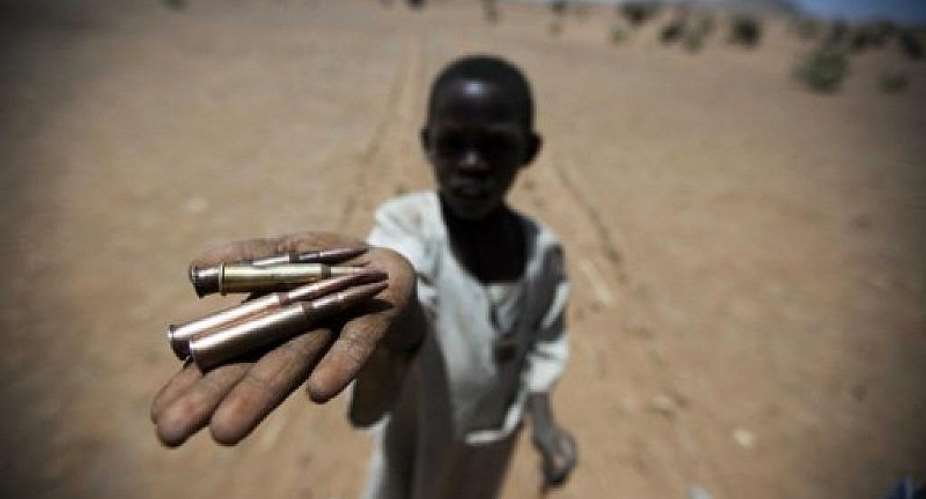Deposed Sudanese president Omar al-Bashir will not be tried for alleged war crimes, genocide and crimes against humanity committed in Darfur from 2003 onwards, according to a Sudanese human rights lawyer.
He was reacting to an announcement made by the new prosecutor general on Sunday that an investigation into Darfur crimes would be carried out.
“These crimes were committed before the law came into force, so the law won't apply on all [these crimes] committed before 2008,” said Amir Suliman, Sudanese lawyer and co-founder of the African Center of Justice and Peace Studies (ACJPS) in Kampala.
The Sudanese criminal law was amended in 2008 to include crimes against humanity and war crimes, according to Suliman.
The Darfur conflict began in 2003, when rebels from ethnic groups in the western region of Sudan started an armed movement against the government to protest their marginalisation, sparking a brutal repression by government and government-backed militias, including the Janjaweed.
Most of the violence in Darfur was carried out before 2008.
The UN cites a total of 300,000 people killed and 2.5 million displaced due to the violence.
Why the Bashir case is still at the ICC
Bashir, who was deposed in April by the army following opposition protests, has a long-standing warrant out for his arrest by the International Criminal Court in The Hague.
“We started an investigation about the crimes that have been committed in Darfur from 2003,” Sudan's prosecutor general Tagelsir al-Heber reportedly said on Sunday in Khartoum.
Although this would be the first Sudanese investigation, it holds no weight, according to Suliman.
“This is why the case was referred to the ICC,” Suliman told RFI. “The justice system, the judiciary, the attorney general, the police … they were all supporting Bashir, which is why when the law came into force in 2008, not one single case was taken to court,” he added.
The government investigation is not satisfactory for the Darfuri people either, he says. The ACJPS went to internally displaced camps in Darfur in 2018, as well as refugee camps in eastern Chad to speak with victims of the violence.
They told Suliman and his team that the only way they would feel justice has been served is if Bashir is brought to the ICC.
- Humanitarian issues in eastern Chad Pt5: Migration takes its toll on Darfuri refugees
- Hope, education and football: What France represents for some Darfuri refugees
“That is the only way they can get redress because they tried the national system when crimes were committed against them [and their families], including rape, murder and taking their property away,” said Suliman, adding that their cases were ignored.





 Whoever participated in the plunder of the state must be held accountable – Jane...
Whoever participated in the plunder of the state must be held accountable – Jane...
 A vote for John and Jane is a vote to pull Ghana from the precipice of destructi...
A vote for John and Jane is a vote to pull Ghana from the precipice of destructi...
 I’ll repay your abiding confidence with loyalty, understanding and a devotion to...
I’ll repay your abiding confidence with loyalty, understanding and a devotion to...
 ‘I’ve learnt deeply useful lessons for the future' — Serwaa Amihere breaks silen...
‘I’ve learnt deeply useful lessons for the future' — Serwaa Amihere breaks silen...
 I’m sorry for the embarrassment – Serwaa Amihere apologises for leaked sex video
I’m sorry for the embarrassment – Serwaa Amihere apologises for leaked sex video
 Dumsor: Matthew Opoku Prempeh not in charge of Energy sector – Minority
Dumsor: Matthew Opoku Prempeh not in charge of Energy sector – Minority
 Adu Boahen’s murder: Police arrest house help who was in possession of deceased’...
Adu Boahen’s murder: Police arrest house help who was in possession of deceased’...
 Akufo-Addo nominates Felicia Attipoe as Tema West MCE
Akufo-Addo nominates Felicia Attipoe as Tema West MCE
 Election 2024: I can't have someone I defeated twice as my successor – Akufo-Add...
Election 2024: I can't have someone I defeated twice as my successor – Akufo-Add...
